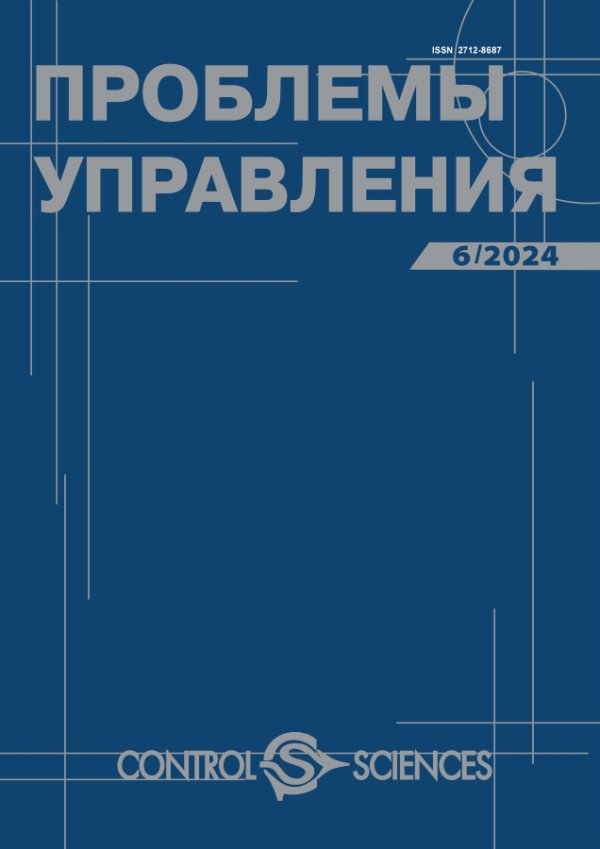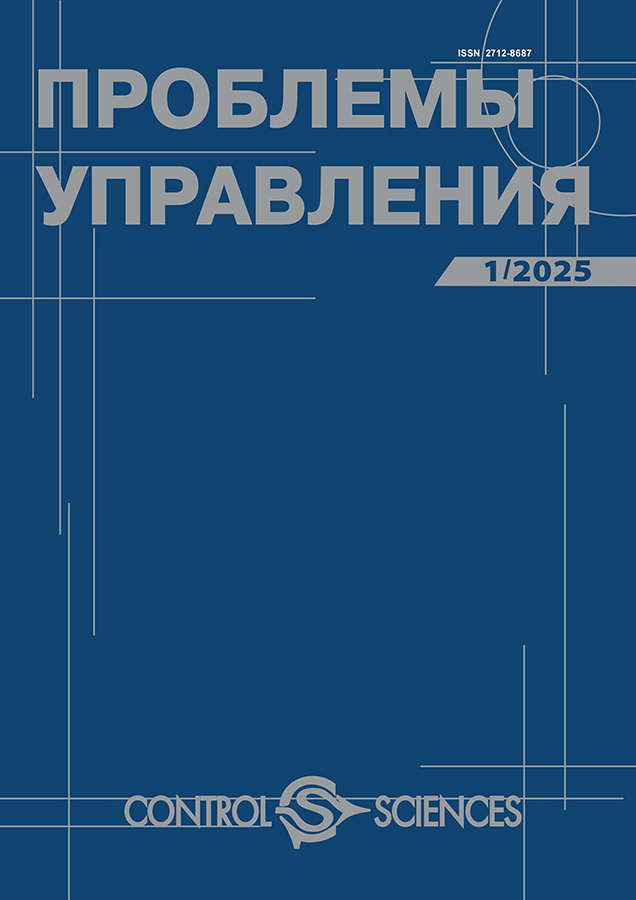No 1 (2025)
Surveys
Unmanned Vehicles: A Survey of Modern Simulators
Abstract
 3-15
3-15


Mathematical Problems of Control
Polynomial Regression of Expert Estimates of Complex Quality
Abstract
 16-29
16-29


Analysis and Design of Control Systems
Dynamic Anisotropy-Based Controller Design for Time-Invariant Systems with Multiplicative Noise
Abstract
 30-39
30-39


Control in Social and Economic Systems
On Coalitional Rationality in a Three-Person Game
Abstract
 40-45
40-45


Information Technology in Control
Constructing Scientific Publication Profiles Based on Texts and Coauthorship Connections (in the Field of Control Theory and Its Applications)
Abstract
 46-52
46-52


Chronicle
32nd International Conference on Problems of Complex Systems Security Control
Abstract
The conference took place in November 2024. Scientific results presented by the conference participants are briefly described below. The conference included the following sections: general theoretical and methodological issues of security support; problems of economic and sociopolitical security support; problems of information security support; cybersecurity and security aspects in social networks; ecological and technogenic security; modeling and decision-making for complex systems security control; automatic systems and means of complex systems security support. Special attention was paid to the theoretical and applied problems of improving the effectiveness of Russia’s national economic, information, and technogenic security management processes. In total, 104 authors from 33 organizations presented 73 papers at the conference.
 53-59
53-59












